Aotearoa needs a powerful response to the rapid pace of change in artificial intelligence (AI). Read more from Nick Agar and Albert Bifet to see what they have to say about AI in Aotearoa.

At the fourth community of practice we were introduced to a maturity model we can apply to our mahi, challenged by a presentation on AI and prompted to review/use the recently-developed algorithm assessment tools in time for our next hui in June.

At the third community of practice we focussed on what brings Community members to the hui, what challenges we are facing and how we could collaborate more. We also heard from the interim Centre for Data Ethics and Innovation on their mahi and intended direction.

Today Stats NZ released the Algorithm Impact Assessment toolkit. Read more about the process designed to support informed decision-making about the benefits and risks of government use of algorithms.
Stats NZ hosted it’s final Raraunga Ara Rau session for 2023. You can read about the event here.

At the second community of practice hui, attendees brought their real experiences with the Algorithm Charter so they could share what had worked, what hadn’t, and, most of all, what they had learnt along the way.
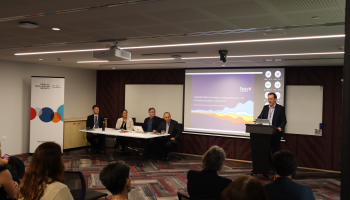
Stats NZ and Social Wellbeing Agency hosted the most recent Raraunga Ara Rau session. Read more about the event here!

Our Interim Centre for Data Ethics and Innovation provides support to maximise opportunities from new and emerging data. Learn more about the centre and how you can get involved.
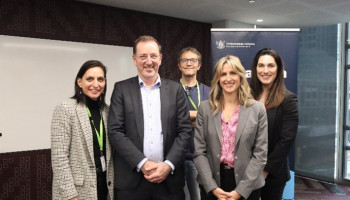
Our latest speaker series, Raraunga Ara Rau, took place last week at Stats NZ, talking all things generative AI. Read more about the event here!

At the first community of practice hui, interested agencies faced the task of figuring out what good transparency could, and should, look like.

The Institute of Environmental Science and Research Ltd (ESR) has developed a Responsible AI Framework guided by the Algorithm Charter for New Zealand. Read more about it here.

The first iteration of the Government Data System Future Design Narrative provides an early-stage ideation of what the Aotearoa New Zealand government data system could look like in future.

We’re looking for new people to join the Data Ethics Advisory Group. Read more to find out how you can be part of a group that provides advice to government agencies, helps maximise the opportunities and benefits from new and emerging uses of data, and advises on responsibly managing potential risk and harm.
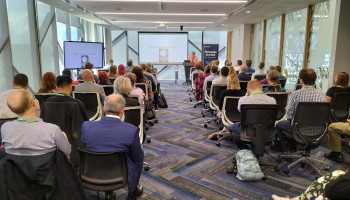
Earlier today, the first of a new GCDS speaker series, Raraunga Ara Rau, took place at Stats NZ. Read more about it here.

Standards that will become mandatory for government departments have been selected for Māori business, ethnicity, Māori descent and iwi. Read more about what standards have been selected and next steps here.
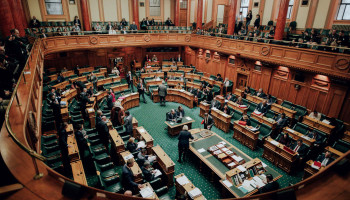
The Data and Statistics Act 2022 is a critical enabler for moving forward; ensuring transparency and trust in the decisions we make on behalf of Aotearoa. Read more about how the new Act will deliver a robust, future-focused data and statistics system.

GNS Science has quantitatively assessed the FAIR Principles compliance of 50 high-value geoscience datasets. This benchmark is the starting point of a roadmap towards further improvements in FAIR compliance.

The standards that Stats NZ produces, previously referred to as statistical standards, will now be called data standards. Read more about the difference between data and statistical standards, when the change will be made and what you might notice about the change here.

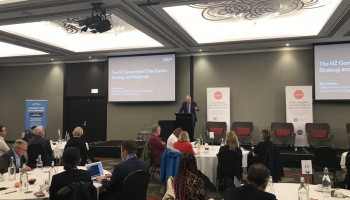
Last week, GCDS Mark Sowden spoke to members of the government data system on the progress we’ve made under Government Data Strategy and Roadmap, and what’s next on our journey. Check out his reflections here.

A new mandated data standard for gender and sex was recently approved for use across the Public Service.
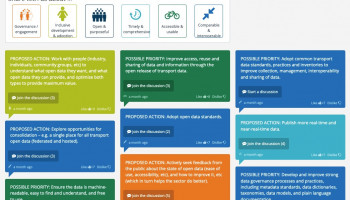
We're building Aotearoa NZ's first, collaboratively-developed, voluntary open data framework, for the transport sector, and we want to hear from you!

The workshop featured 6 lightning talks on a range of open data topics, followed by discussions on open data gaps and barriers to releasing and accessing open data.



In 2019, Stats NZ on behalf of the GCDS contracted Bell Gully to write a report outlining the benefits, risks, and mitigations of storing iwi and Māori data in the Cloud.
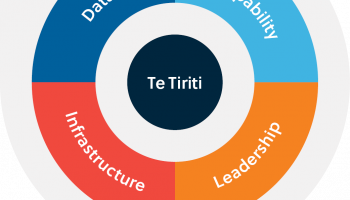
Earlier this month, the Government Chief Data Steward released the New Zealand Government Data Strategy and Roadmap – the guiding document for the government data system, outlining priorities for the next five years.

Each year we invite users of data.govt.nz to complete a short survey about their experience using this website.

Police are developing a suite of activities to ensure any emerging technologies, such as Facial Recognition Technology, are well understood, publicly accepted, and if need be, regulated. It is also critical that any impacts of technology are understood from a Te Ao Māori perspective.
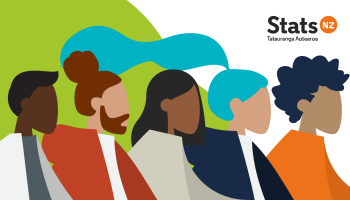
On 22 April 2021, Stats NZ released an updated Statistical Standard for Gender, Sex and Variations of Sex Characteristics.

The process for selecting mandated data standards (previously called Data Content Requirements, or DCRs) has been updated and approved by the Information Group.

We drafted and tested possible changes to the way this website organises information. Based on that testing, we will make improvements to the website over the next few months. This blog is a heads up, so that you are best prepared for these planned changes. Also, we continue to welcome any feedback about the changes.

On 11 February, 2021, the Data and Digital Standards Community of Practice will hold their first quarterly event of the year.

What do you think data.govt.nz should provide, now and in the future? Tell us what you think, and what you want, by completing our short survey – it will only take 3-5 minutes.


COVID provides an opportunity to adopt a broader perspective on core concepts, to reimagine how we approach the foundational frameworks behind data management and use, to catalyse meaningful change. Feel the same, join us.

The Government Chief Data Steward wants to connect you to the resources and information you need to respond in a prepared and co-ordinated manner alongside your peers in the data system.

The 'COVID-19 data and information activity catalogue' describes data and information work currently underway across the system. The catalogue is managed by the Stats NZ COVID-19 data collaboration team.

Historic geological maps, fossils, volcanos, geomagnetism and Pokemon Go... Learn about the treasure trove of data that GNS Science care for and have made discoverable for you.

We’re looking for a diverse group of people to join an organising committee for the Data and Digital Community of Practice to improve the New Zealand data system. Join us!

MFAT is the first organisation to pilot the data capability framework to gauge the depth and breadth of data and analytical skills within the Ministry. Stats NZ and MFAT analysed responses to the framework assessment questionnaire and identified overall strengths and gaps across the range of 26 capabilities, giving an indication of MFAT's skill set and the direction they should move in the future.

The open government information and data programme has concluded. But the lessons from the programme will inform our ongoing commitment and work toward open government data, which endures under the Chief Government Data Steward.

If data maturity assessments are to be of value as a business tool, they must express their results with clarity, meaning, and relevance to the executive leadership responsible for investment decisions. With this in mind, we propose a high-level and qualitative model.

This week the Minister of Statistics James Shaw, launched the Algorithm Charter for Aotearoa New Zealand. The charter has already been signed by more than 20 government agencies. The Charter signals that these agencies are committed to being consistent, transparent and accountable in their use of algorithms.

We need your feedback - when looking for relevant data, what extra information would help? The draft government data register may give you some ideas.
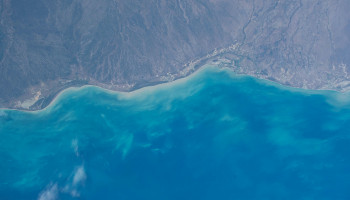

Data governance norms can be the proverbial calm in the storm. It seems to me we need that now, more than ever.

The New Zealand Open Data Meetups, despite COVID-19 lockdown, were able to safely gather and talk about experiences, data frustrations and ideas to help in these unusual times.
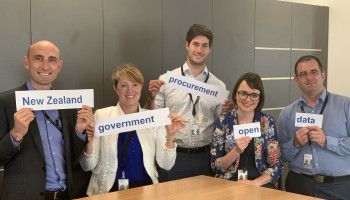
New open data files make it easier to analyse contract award notices published on the Government Electronic Tenders Service (GETS).

Following on from its first blog post, NZTA is now releasing in full its open data framework, toolkit and process overview.

Minister for Statistics James Shaw has announced a public consultation on a proposed algorithm charter for government agencies.

A Data Ethics Advisory Group has been convened to provide advice on data use to the Government Chief Data Steward and government agencies.
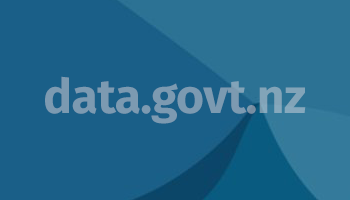
NZTA has been developing a simple open data framework and processes to help them release open data, and would love your feedback.

A new Plan shows us what, when and how to measure digital development.

The latest quarterly data dashboard from Stats NZ (January to March 2019), highlighting key deliverables for their data leadership role, is now available.
Stats NZ has produced a series of short videos to help de-mystify their role of stewarding data and raise awareness of how they're supporting agencies to use data more effectively.

The expression of interest process for the Advisory Group on Trusted Data Use has been extended until 7 June.
This year, groups from around the country took part in International Open Data Day, working on everything from writing tutorials and feedback, to building front ends, to sharing knowledge and discussing books.
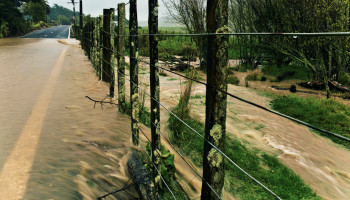

In January 2019, we published the content strategy and style guide for data.govt.nz. We'd love to get your feedback.
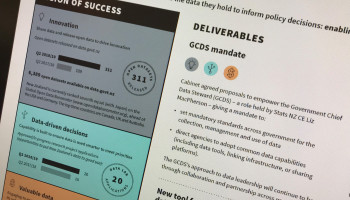
The latest quarterly data dashboard from Stats NZ is now available.

Last night we held the first open data meetup of the year in Wellington - here's what happened.

The Wellington open data meetup organisers been thinking and hearing lots about what the meetup series could look like / aim to achieve this year.
Here are our thoughts.

Inspire. Guide. Illuminate. Share. And get some credit for what you know.
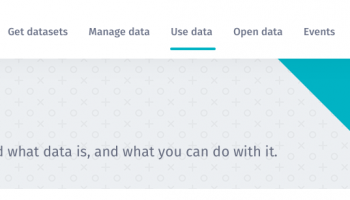
We’re excited to announce that the data.govt.nz makeover is very nearly finished – from early 2019, the site will look quite different, and have some more exciting (we think) changes under the hood.
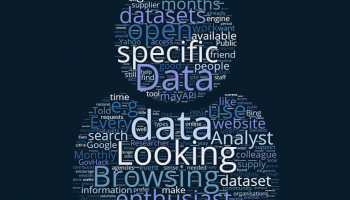
We look at the latest results from the data.govt.nz community feedback survey, to find out what works for you, what doesn't, and how we can improve the experience of using data.govt.nz.
The Open Data NZ team is releasing two updates: one looking back over the last six months, and one looking at the next six.
Register for a free public lecture by international algorithm ethics expert Lorena Jaume-Palasi (5 December, Auckland), co-sponsored by Stats NZ and AUT's Centre for Social Data Analytics.
New videos by Stats NZ brings panellists together to examine and debate Māori perspectives about the way we collect, share, and use data.

Datability - Stats NZ's quarterly newsletter on the work being done to help government better manage data - is now available.

Stats NZ's data dashboard for Q1 2018/19 provides the latest snapshot of how their work across government supports their vision of enabling better outcomes for New Zealanders.
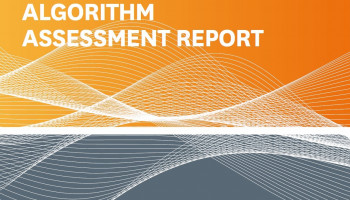
A first-of-its-kind report provides valuable insights into the use of algorithms in government agencies.
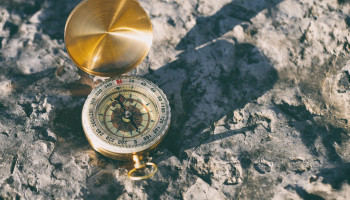
The Data Strategy and Roadmap provides a shared direction and plan for New Zealand’s data by enabling organisations to work together to align their data initiatives.

Organisations have different requirements for protecting data confidentiality, privacy, and security. A newly-released report documents best practice principles for technical experts and managers who supply and use data in New Zealand.
1975. The Corolla ruled, mix tapes were a ‘thing’ and the Stats Act became law. How things change! Actually… the legislation hardly has. It doesn’t even feature the word ‘data’. Far-out!
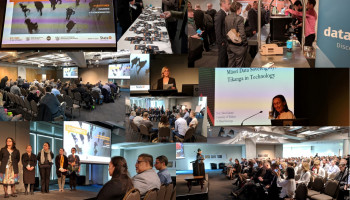
More than 250 data warriors, policy peeps, and those from across government, NGOs, business, and academia who want to know more about data, gathered in Wellington to talk data ethics.

Our open data maturity dashboard aims to show progress in the final output of open data and tell the story of a growing maturity in the overall stewardship of New Zealand’s public data assets.

After 10 years dedicated service, data.govt.nz is undergoing a transformation to ensure it’s got the right resources to build data management know-how as New Zealand heads into its digital future.

Help improve data.govt.nz by taking the 2018 community feedback survey.

Data.govt.nz is changing and updating our navigation to help you find things easier. Read about what we found from our user research.

Data.govt.nz is rolling out new features to make the data APIs faster and more reliable.
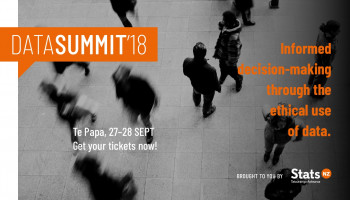
For the first time, Stats NZ will host a 2-day summit on informed decision-making through the ethical use of data.
As the agency leading New Zealand’s data, Stats NZ’s quarterly dashboard profiles what we’re doing to support our role as the lead agency for New Zealand’s data.
A cross-government review is underway to increase the transparency and accountability of how government uses algorithms – to help improve the lives of New Zealanders.
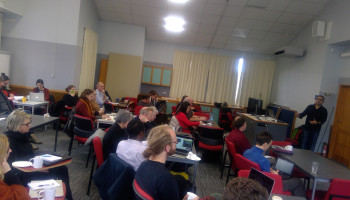
Stats NZ hosted a series of 2-day Data Visualization workshops – in conjunction with the recent Open Data Meetups – in Auckland, Christchurch, Wellington and Dunedin.

Thanks to everyone who participated in the card sort. Three design options have been created based on your feedback, and now we need you to test to determine the final structure.

The Open Government Data Dashboard shows progress in the maturity of management and release of data across government.

Data.govt.nz is being reshaped to make it more useful – and we’d like your input.

Open Data Meetups in NZ are for sharing the passion and success around the release of open data with like-minded people.
Read about the work involved to make a machine readable version of the Family Services Directory available on data.govt.nz and how it's being used to power other digital services.

Stats NZ and members of the open data community celebrated open data day by witnessing the Minister of Statistics and Government Chief Data Steward co-sign New Zealand’s Open Data Charter letter.
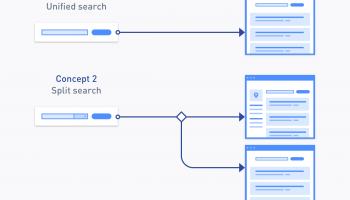
We tested two concepts with a number of our users from the data community to extend the search so it includes results from both datasets and content. Read about our process and provide your feedback.
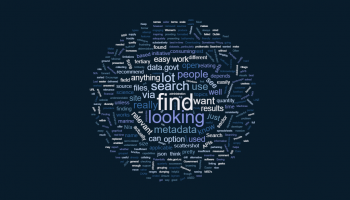
Our data and performance analyst reviews the results from the first data.govt.nz community feedback survey. Find out what users want and how we're planning to improve data.govt.nz.
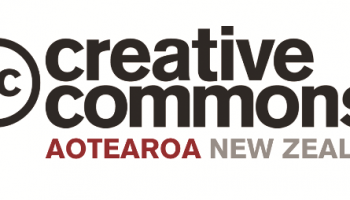
Find out the role copyright plays in open data, and where training is available to learn how to apply open licensing in your work.
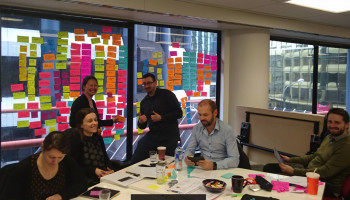
The data.govt.nz, Open Data Programme and Stats NZ teams got together at the Service Innovation Lab last week to share experiences, compare notes and ideate around models that could serve users better in data discovery and use.

We are currently running an online survey to gather data on how we can improve our customer experience for Data.govt.nz.
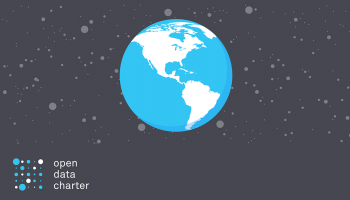
Read about the adoption of the International Open Data Charter by the New Zealand Government.

Give your feedback on the proposed open government data dashboard for the Open Government Partnership National Action Plan.
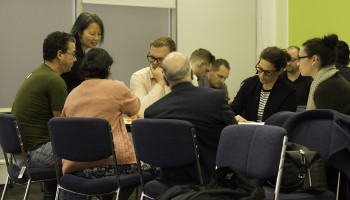
The sharing of open data stories raises awareness about open data and encourages new release and use. Recently Stats NZ commissioned engage2 to gather stories from current and potential users of open data.

The sharing of open data stories raises awareness about open data and encourages new release and use. In 2017 Stats NZ commissioned engage2 to gather stories from current and potential users of open data.
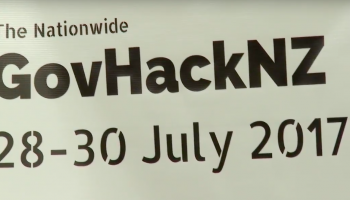
Watch the wrap up video from the GovHack Wellington instalment, 28-30 July 2017.
Developer Alex Raichev used open data to create a web application that helps you work out the most affordable suburb to rent in and commute from.
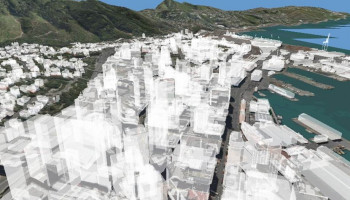
Sean Audain, Innovation Officer (Smart City) at Wellington City Council, talks about their open data journey and what they've learnt over the years at GovHack.

You've seen the pronouncements about the volumes of data that power the world around us and that this is increasing exponentially. But where’s all this data coming from?

Ellen Broad believes that the benefits from open data are potentially organisation changing, because of the culture that open data encourages. Open data will drive government to being more efficient and working collaboratively to solve common problems.
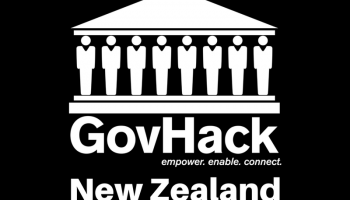
We’re ramping up for this year’s GovHack event at the moment and excited to be a national sponsor again this year.

Government agencies are undergoing a culture change – they’re moving towards their data being ‘open by design’. At a recent workshop international expert Ellen Broad explained what open data is and outlined some of the considerations for agencies that are opening up their data.

Stats NZ is holding workshops for open data users next week: come along to share, learn and rub shoulders with other people who share your interest in open data.

Engagement with data users is a key part of the Open Government Data Action Plan, because it helps to understand and prioritise what data users want.

Some big changes are underway that will have very positive impacts on open government data in New Zealand.

When: Wednesday, June 28, 2017, 5:30 PM to 7:30 PM

What will things look like when open data is “working”? Entrepreneurs, businesses, researchers, community groups and individuals will be innovating, creating new insights and acting as informed participants in government decisions.

"Open by default" is a term bandied around when talking about open data policy. I find the phrase often helps lift the barriers rather than bring them down but if...

Early in April (prior to our launch of data.govt.nz), I met with Stu Smith and Helen Donaldson from the Auckland Council open data Community of Practice to demo and discuss...

A summary video of the Wellington, New Zealand hackathon held at the National Library of New Zealand for the 2017 International Open Data Day

International Open Data Day, Wellington was held in the National Library of New Zealand on Saturday, 4th March.

Ok, so I'm in the middle of data migration for the new data.govt.nz open data portal at the moment and thought I'd take a moment to highlight something that:

Data.govt.nz are proud to be a part of this years Open Data Day hosted at the National Library of New Zealand's Net.work space on Saturday, 4th March 2017 (mark it...

I take my hat off to PwC Wellington and Auckland for appreciating the value of data and being bold enough to try new ways to help others learn about it.

The data.govt team will be migrating currently listed datasets across to CKAN - the internationally recognised open data catalogue platform - as part of the release of the new data.govt.nz.

Open data is a core component of our world’s increasing digital economy, providing opportunity to generate significant social and economic benefits to our society.

In June 2016, the Open Government Information & Data Programme conducted a nationwide survey asking people the top 10 datasets they would like to see released.

At the recent International Open Data Conference in Madrid, more than 1,500 people arrived from the far corners of the earth to share knowledge, spark ideas, and set forth new...

Pia gave presentations outlining her thoughts on the broad data agenda across New Zealand, with some recommendations, suggestions drawing on successes from government open data release across the Tasman.

TLDR: We've updated beta.data.govt.nz, added some more data (old and new, records and hosted data) for testing, and need your feedback to help us decide whether to proceed and what...

As such we are considering implementing a basic technical quality framework on data.govt.nz and would like your feedback on whether this approach would be useful, whether you are a data...

The Department of Internal Affairs has sponsored $2,000 bounties for the each of the two following national challenge questions.

In February and March 2016 Open Data NZ held a series of conversations with leading international open data experts, including Beth Noveck.

In February and March 2016 Open Data NZ held a series of conversations with leading international open data experts, including Richard Stirling.

In February and March 2016 Open Data NZ held a series of conversations with leading international open data experts, including Joel Gurin.